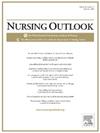在终身制轨道上改善未被充分代表的少数民族护士教师的指导机会:一项德尔菲研究
IF 3.7
2区 医学
Q1 NURSING
引用次数: 0
摘要
师徒关系对于支持有博士学位的护士向学术角色过渡以及解决日益严重的护士师资短缺问题至关重要。目的本研究的目的是获得共识的障碍,促进因素和指标,成功指导博士准备的少数族裔(URM)护士教师。方法召集美国URM专科护士教师的德尔菲小组。在第一轮中,受访者回答了确定障碍、促进因素和成功指标的开放式问题。在第二轮中,参与者用5分制对他们的同意程度进行评分。第三轮包括焦点小组讨论。第一轮调查共对107名URM护士进行了问卷调查,共收到35份回复,回复率为32.7%。其中23名参与者完成了第2轮(保留率为65.7%)。排名靠前的指标包括与个人发展计划相一致的里程碑进展,以及导师与学员之间的参与度。结论本研究强调了相关因素对有效师徒关系的重要性。本文章由计算机程序翻译,如有差异,请以英文原文为准。
Opportunities to improve mentorship of underrepresented minority nurse faculty on the tenure track: A Delphi study
Background
Mentorship is essential for supporting doctorally prepared nurses transitioning into academic roles and for addressing the escalating nurse faculty shortage.
Purpose
The objective of this study was to gain consensus on barriers, facilitators, and metrics of successful mentorship of doctorally prepared underrepresented minority (URM) nurse faculty.
Methods
A Delphi panel of doctorally prepared URM nurse faculty in the United States was convened. In Round 1, respondents answered open-ended questions identifying barriers, facilitators, and success metrics. In Round 2, participants rated their agreement using a 5-point scale. Round 3 included a focus group discussion.
Discussion
The Round 1 survey was distributed to 107 URM nurse faculty, with 35 responses (32.7% response rate). Twenty-three of those participants completed Round 2 (65.7% retention). Top-ranked metrics included progress on milestones aligned with individual development plans and quality of mentor–mentee engagement.
Conclusion
This study underscores the importance of relational factors in effective mentorship.
求助全文
通过发布文献求助,成功后即可免费获取论文全文。
去求助
来源期刊

Nursing Outlook
医学-护理
CiteScore
6.20
自引率
7.00%
发文量
109
审稿时长
25 days
期刊介绍:
Nursing Outlook, a bimonthly journal, provides innovative ideas for nursing leaders through peer-reviewed articles and timely reports. Each issue examines current issues and trends in nursing practice, education, and research, offering progressive solutions to the challenges facing the profession. Nursing Outlook is the official journal of the American Academy of Nursing and the Council for the Advancement of Nursing Science and supports their mission to serve the public and the nursing profession by advancing health policy and practice through the generation, synthesis, and dissemination of nursing knowledge. The journal is included in MEDLINE, CINAHL and the Journal Citation Reports published by Clarivate Analytics.
 求助内容:
求助内容: 应助结果提醒方式:
应助结果提醒方式:


